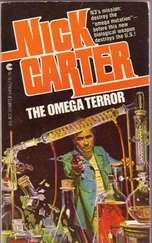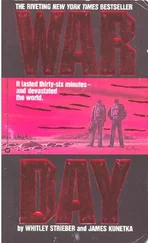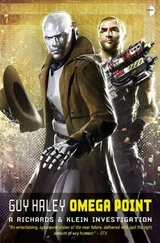“Let’s keep focused on the clinic. That’s our responsibility.”
“Okay, fine. Nothing was delivered today, David. And I can’t reach Sysco, I can’t reach UPS, FedEx, Maryland Medical, anybody.”
Outside, the auroras were dancing.
“I do think we need to close all blinds and curtains.”
“That won’t keep out radiation, will it?”
“Actually, it’ll help. Gamma rays aren’t very penetrating and the walls are thick. The roof is made of tons of slate. The weak point is the windows. And I think we need to minimize guard patrolling. Keep the men in sheltered areas.”
“I think this place is going to collapse. In fact, I think the whole world is going to collapse.”
At first, she had seemed welcoming, but no longer. She was totally focused on the welfare of the institution and its people, and he thought at once two things: she’s right to be afraid; but then, can I rely on this woman? Her file was equivocal. It was hard to know exactly what her relationship with Dr. Ullman had been, and there were a number of years in her timeline that were not accounted for. If they were going to go through a crisis, he would like to know about those missing years. In fact, he’d like to know more about the entire staff, especially the security personnel. He needed to know who the class could rely on and who not.
The intercom clicked. “We have a code blue in Room 303.”
He hit the reply button. “Is the cardiac team in motion?”
“Yes, Doctor.”
“I’m on my way.” As he left, he called back to Katie, “Do you know which patient that is?”
She was right behind him. “I’m not certain.”
As he ran across the flyover to the patient area, he could hear voices ahead. The nurses had just wheeled the shock wagon into one of the rooms. David saw that they were working on Linda Fairbrother. Her skin was cyanotic. David’s initial impression was that the woman was dead.
The nurses performed efficiently, but not like code blue teams he’d seen in operation at Manhattan Central, where they did a cardiac arrest every few days. Then he saw that one of the defibrillation paddles was on the wrong side of the woman’s chest.
“Hold it,” he snapped. He could hear the whine of the defibrillator loading.
“It’s gonna fire!”
He grabbed the paddle and placed it correctly. Just as he pulled his hand away, the system fired off and the patient convulsed. A moment later the computer said, “No response. Reload. Ten seconds.”
He would let it go through two more cycles, then pull it off. He saw that he’d have to inform the Fairbrother family that their patient had expired. But how, given the state of communications?
The third round came, the body convulsed again… and the heart started. “Stable rhythm,” the computer said. “Defibrillation complete.”
The staff wasted no time moving her to the facility’s small infirmary. David wondered what this was—a natural event or the result of some sort of attack?
“We need to get this woman into cardiac intensive care,” he said.
“Raleigh County EMS isn’t responding,” one of the nurses said.
“Did you call the hospital’s main number?”
“Doctor, I called all five hospitals in the area. No response.”
Katie said, “I told you, David, it’s all coming apart.”
Anger put a bitter snap into his voice. “Maybe it is, but we’re here now and we have a heart attack to deal with.” He felt the full weight of this place and all these people on his shoulders just now. “I’m sorry,” he said. She did not deserve his spitting words, it wasn’t her fault.
He went down the corridor and through the door into the main patient area with its wider hallway and its expansive suites. People had heard the activity and were coming out. As Linda was moved past, they watched in a silence that was quite unlike what would have happened, say, at Manhattan Central. Frankly, these people were much more contained than he would have expected, and he wondered if perhaps Caroline was secretly waking up the class. He hoped so.
“All right,” he said to the largely calm and silent group, “Linda had a minor cardiac event. Please return to your rooms now.”
William Moore, one of the genuine patients, gave him the most menacing look, lips a set line, body language suggesting that he’d like to pounce. Then he grinned from ear to ear.
“You’re a bureaucrat,” he said.
“I’m your doctor.”
“The bureaucracy of medicine is the machinery of death.”
David stopped himself from automatically moving into a therapeutic stance with this patient and said simply, “We can talk tomorrow.”
“With you? You’re a waste of space.”
“All right, then, with Dr. Hunt or one of the psychologists, as you prefer.”
Leaving the patients to the nurses, he went into the infirmary.
Linda Fairbrother was lying quietly as Marian Hunt applied leads to her chest from the EKG machine.
“They’re coming for me,” Linda said.
“Who is?”
She snapped her jaw shut.
He would once have thought that this was yet another patient struggling with inappropriate thoughts, but as she was a member of the class, he wasn’t sure what was meant. He wanted to ask her more. He remembered those two glyphs on her record. There was something special about her.
“Linda, tell me what’s troubling you? Who’s coming for you?”
“I got a message.” Her fist closed on his shirtfront and she pulled him face-to-face. “I don’t think Tom can go.” Her voice dropped to a whisper. “Never tell anybody this, but he has this blackness on his back and side, and it’s growing.”
David’s mind went to the notion of judgment. Could those who had done evil be actually, physically marked? It seemed impossible, but all the rules were changing now. Perhaps bodies were becoming mirrors of souls, our flesh no longer concealing our truth. But what had Tom Dryden ever done, that innocuous little man? All he could think was that people tend to keep their evil acts secret.
Marian came up to him with the EKG tape.
“This is normal,” she said.
“Can we e-mail it to a cardiologist?”
“If the Net comes back. But we’ll get a normal report, no question.”
David looked at the tape. He had been assuming that this was an episode of sudden arrhythmia death syndrome that had been interrupted by timely action.
“No Bruguda sign,” he muttered, “no fibrillation.”
“No arrhythmias at all, in fact.”
“I think we need a deeper study on this woman. Hearts don’t just stop. And we want her under close observation until we can get her into a cardiac unit.”
“David, I’ve been exploring unexplained cardiac arrests. Bangungut and familial long QT syndrome are possibilities.”
“And Bangungut is?”
“A type of nightmare so intense that it can cause death. Common in parts of Asia.”
This staff was out of its depth. No specialist would even bother to think about something so irrelevant.
“And familial long QT syndrome? Any symptoms?”
“There’s no heart abnormality or defect. A little crud in the arteries, nothing to get excited about.”
“And how do we know this? Do we have documentation?”
She paused for a moment, then said more quietly, “She’s presented this way before.”
“So was there follow-up?”
“Of course there was follow-up! We could get out of here then. She was worked up at Raleigh County. The heart muscle was healthy.”
“So she can stop her heart at will?” He looked down at her. “Can you do that, Linda?”
“I’m afraid you won’t let me go home. I have nightmares about it.” Her eyes bored into his. “I’m not like the rest of you. It’s time for me to go home.”
Читать дальше











